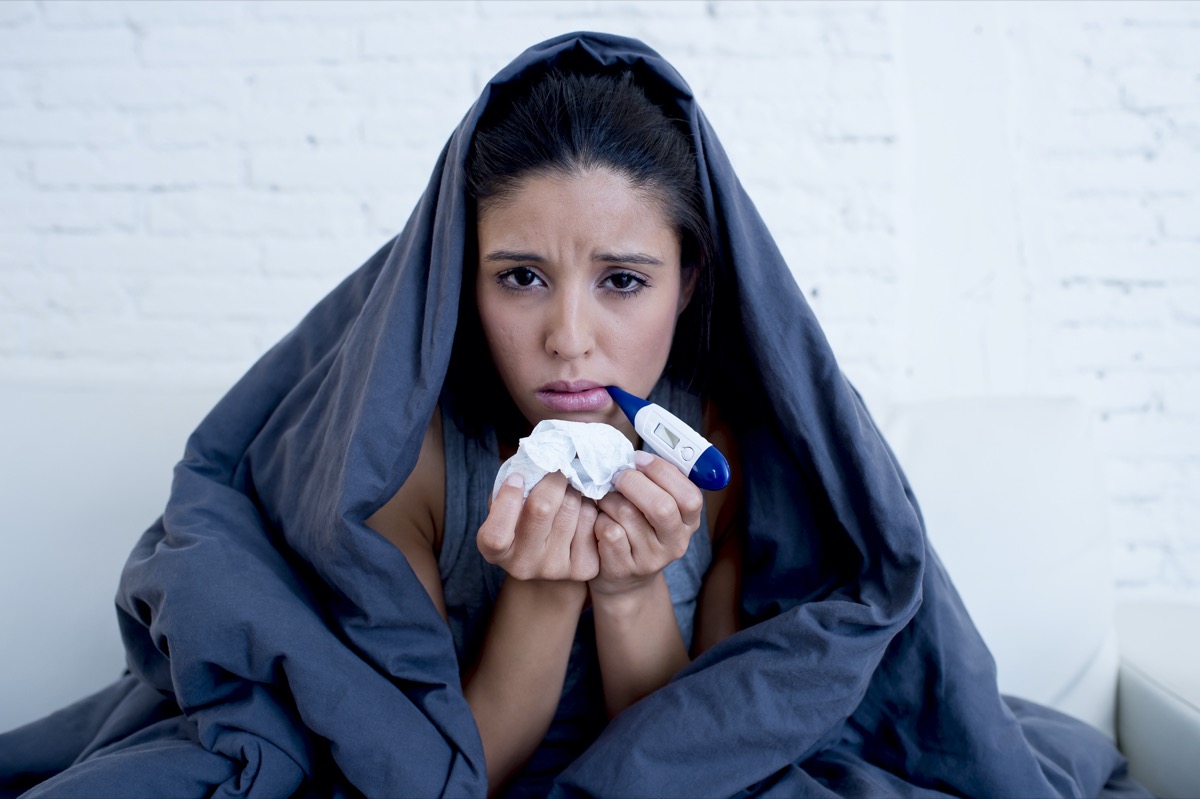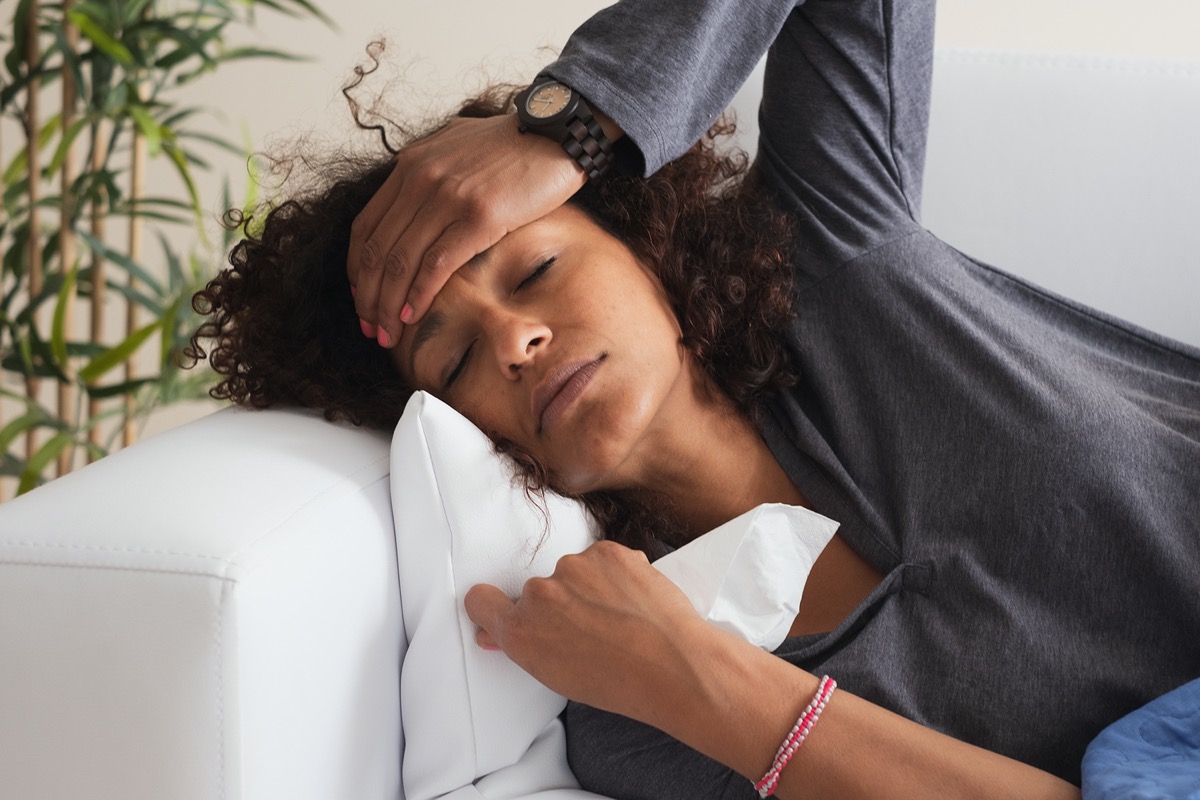You know the guy: He's bleary-eyed, sniffling, coughing. And he's sitting at the desk next to yours. He's obviously sick, but he's also obviously at work, likely spreading his viral load to anyone in his immediate airspace.
Don't be that guy. We don't blame him necessarily. Lots of people show up to work sick even though they feel like crap because they can't afford to miss a single day.
Some 1.4 percent of full-time workers worked part time in January 2021 because of an illness, injury or medical problem or appointment, and 1.8 percent of full-time workers worked part time for the same reasons in January 2020, according to the U.S. Bureau of Labor Statistics.
About 65 percent of 6,600 hourly workers showed up for their shifts despite being sick for any reason, including COVID-19, according to surveys in fall 2022 by Shift Project, as reported by CNN. Some 55 percent said they needed the pay, and 30 percent said they didn't have paid sick leave.
"Going to work means we get paid, the workplace is staffed, your co-workers don't have more to do," says Dr. Thomas Fekete, section chief of infectious diseases at Temple University in Philadelphia. "Staying home may mean you don't get paid, or you have to use sick time. It's a tough call."
Still, here are signs that you're too sick to go to work.
"There are a couple of hard and fast rules that people should abide by," says Dr. Jen Caudle, Rowan Medicine family physician and associate professor in the Department of Family Medicine at Rowan University-School of Osteopathic Medicine. "First thing is, if you have a fever, you definitely should not go to work."
You should stay home until at least 24 hours after your temperature of 100 degrees Fahrenheit or higher is gone without taking medication for it, according to the Centers for Disease Control and Prevention.

If you have green or yellow nasal discharge, it could be a symptom of a sinus infection, according to the Keck School of Medicine at the University of Southern California.
"You generally are contagious as long as you have symptoms," says Dr. Kevin Hur, an assistant professor of clinical otolaryngology at Keck School of Medicine. "You may be more contagious when your symptoms are more severe."
"Most of us are sicker than we think we are," Fekete says. "The problem, again, is the first six to 12 hours, when your symptoms can get markedly worse. This means that by the time you start to feel really rotten or have bad symptoms, you might already be at work."

A major headache combined with symptoms such as sniffling, sneezing or fever could indicate you have the flu, Keck says.
You are most contagious in the first three to four days after symptoms appear. You may even be contagious with the flu a day before you begin to show symptoms. You remain contagious five to seven days after you fall ill, and it may take as long as a couple of weeks to get over the flu.
"I always say, if you think you might be too sick to go to work, then you just might be," Caudle says. "Now I know that's not very specific, but I think it's really important that people listen to their instincts and … listen to … what their gut tells them."

Other signs that you are too sick to work include sniffles, coughing or a scratchy throat, even without a fever, Keck says.
A cough is a common symptom of a cold, but it could also indicate bronchitis or pneumonia if it's accompanied by chest pain or breathing difficulty. In that case, you should definitely avoid work and see a doctor.

If you have the following symptoms, you should take a home COVID-19 test or have your doctor or health care professional administer one. If you test positive, stay home and seek medical care.
COVID-19 symptoms include fever or chills, cough, shortness of breath or difficulty breathing, fatigue, muscle or body aches, headache, new loss of taste or smell, sore throat, congestion or runny nose, nausea or vomiting, or diarrhea, according to the CDC.
If you were exposed to COVID-19 and do not have symptoms, wait at least five full days after your exposure before testing to avoid a false negative result, the CDC advises.
You should also take a test if you work with or do work involving high-risk people, including older people, children, immunocompromised people, and people with other serious illnesses or conditions, among others.
The post Signs You're Too Sick to Work, Experts Say appeared first on Eat This Not That.
----------------
By: Christopher Smith
Title: Signs You're Too Sick to Work, Experts Say
Sourced From: www.eatthis.com/signs-youre-too-sick-to-work-experts-say/
Published Date: Sat, 04 Feb 2023 12:15:48 +0000
Read More
 HealthWellnessFitnessBeautyVideosPrivacy PolicyTerms And Conditions
HealthWellnessFitnessBeautyVideosPrivacy PolicyTerms And Conditions
